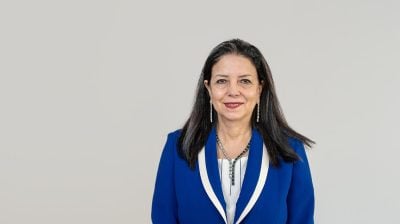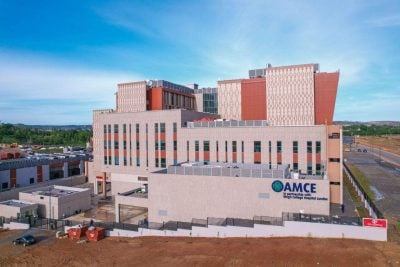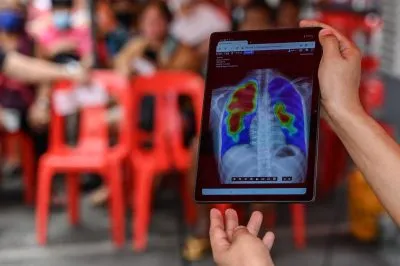HPS is a group that has succeeded in establishing itself within the narrow domain of software packages: 85 countries, more than 400 experts and consultants, 350 satisfied customers. Where has this success come from?
HPS was founded in Morocco in January 1995, and has been listed on the Casablanca stock exchange since 2006. It became a market leader thanks to over 20 years of dedicated, passionate work in building up intangible assets.
Human capital: Our staff have always been our main asset. We have more than 400 engineers and experts, 30% of them women. We will continue to invest in their talents with ongoing training through the HPS Academy. We will also continue to strengthen the cultural richness and diversity of our team, which already boasts members from over a dozen different countries.
Our products: The PowerCARD solution is recognised as one of the best and most complete on the market. Our R&D grows and advances every year, with 12% of revenue being invested in development to support our commitment to innovation.
Organisational capital: Our international expansion is guided by a policy of staying close to our clients – geographically culturally and linguistically. We achieve this through our network of partners and our structure, which is based around autonomous regional offices and agencies located in Casablanca, Singapore, Paris, Aix-en-Provence, Dubai, London and Nebraska.
HPS’s clients: Our PowerCARD solutions are used by over 350 institutions in more than 85 countries throughout the world, including 39 in Africa. Our customers are the most important thing for us; we work tirelessly to meet their needs and earn their trust and loyalty.
The HPS brand: Since HPS was created, we have constantly invested in promoting the HPS brand, so that our customers know that choosing HPS means quality.
Providing solutions as well as services means that you need huge teams of engineers, and a great deal of innovation. How do you achieve that?
Our sector is characterised by rapid changes, resulting from technological advances, regulatory developments, sudden changes in customer behaviour, and new arrivals in the industry looking to disrupt the structure of the payment market. We are also facing increasingly aggressive competition. To compete successfully, we need to be flexible, with a constant and effective innovation strategy.
Innovation is at the very heart of HPS’s strategy. It is fed by in-depth knowledge of our customers and by staying ahead of the game when it comes to technological and regulatory changes that are liable to affect our industry. With this in mind, we created the PowerCARD Users Club in 1999. It is a platform for exchanges between HPS and its customers, helping us draw up a roadmap for our products. We also work with the biggest players in the payment sector in order to better understand current and future industry requirements. We are a central member of Nexo, an institution bringing together all the big names in the industry so that they can work together and establish standards.
We also organise regular Users Meetings, where we give our customers and partners the opportunity to share their experiences and expectations in terms of development and innovation.
Africa represents an enormous potential market, and you’ve been on the scene since you were founded. How do you plan to adjust your strategy to cement your position in an increasingly competitive environment?
You’re right, Africa is one of the most dynamic regions in the world in terms of electronic payment developments. While the number of transactions is still low, the market shows significant rates of increase year after year, and it’s one of the most dynamic sectors in the mobile sector.
Thanks to mobile payments, people now have an accessible and simple solution for financial inclusion. They can manage their account, make savings, pay at the store, settle accounts between individuals, withdraw cash and receive money from abroad.
All analyses show that Africa will be the first continent to experience mass adoption of mobile payments. According to the Bill & Melinda Gates Foundation, by 2030 more than 2bn people from regions with inadequate banking services will be using mobile payments on a daily basis. More than 40% of new users will be Africans.
With 50% of the population aged under 34 and a chronic lack of banking services, Africa offers huge potential for economic growth. One of the main challenges for the continent is how to promote financial inclusion. Central banks are setting up infrastructures and a regulatory framework to encourage the adoption of electronic means of payment.
HPS is a leader in this area. As an example, the national interbank associations in Morocco and Ghana, as well as the West African regional GIM-UEMOA inter-bank group, use the PowerCARD solution, which has emerged as an industry benchmark. Our strategy is to consolidate our position as leader within the continent through the quality of our products and our services, so that we can retain existing customers and gain the trust of potential new clients who are looking for solutions from us. Our knowledge of this continent and its quirks represents a major asset to set our service apart from our non-African competitors.
How will ever-increasing digitalisation change what you supply in terms of your solutions and electronic payments?
The more things move towards digital, the more connected, well-informed and demanding our customers become. They want faster, cheaper and more straightforward financial services.
The dream of made-to-size payment services will soon be coming true. Every customer represents a separate market. The data needed to paint a detailed picture of each customer – their private life, their likes, their usage habits and their interests – is right at the heart of the battle for customer experience.
Moreover, the financial crisis in 2008 affected the entire global economy and shattered consumer confidence in an opaque financial system. However, households still want to look after their savings, and they prefer the security that banks offer, even if it’s not a perfect solution.
All of these factors have contributed to a shake-up of the payment market, which comprises three types of actor:
- Traditional financial actors, specifically banks, who are handicapped by structural and regulatory burdens, preventing them from responding efficiently to new consumption patterns among their customers.
- Fintech companies, who are flexible and find themselves halfway between the traditional financial sector and new digital uses. They offer innovative payment services with disruptive business models.
- Technological actors, which are the internet mega corporations, telecoms operators and other e-commerce giants, such as Alibaba. These companies use their core business and the data they gather from their clients to offer one-click personalised payment services with a unique customer experience.
The actors have two scenarios available to them for their strategic choices:
Scenario 1: A digitally disrupted market with wars among the various types of actors,
Scenario 2: A digitally reconfigured market promoting cooperation, coopetition and rationalisation of costs.
It goes without saying that the best thing for the market is to avoid a destructive rivalry. The three groups of actors should join forces to fight their common enemy: cash. In response to these changes, HPS’s strategy is to bring our payment expertise, technology and flexibility to each of the different groups of actors.
Targeting the African market also requires training and coaching for everyone. How do you integrate this side of things?
About 10 years ago, we founded HPS Academy, which offers a range of training courses in four languages – French, English, Spanish and Arabic – with 70 modules about electronic payment. It’s designed for university work experience students, as part of the induction of new hires, and to provide ongoing training for all HPS group staff. The user experience has also been constantly at the centre of HPS’s thoughts, which in turn has driven several technological transitions aimed towards creating new usages in the field of payment.
In February of this year, HPS launched an Open Innovation programme to devise and implement the payment system of the future. We come up with the best developments after open discussions and brainstorming with our clients and partners, as well as students and independent professionals. With this in mind, we scheduled a hackathon as part of our Users Meeting in April 2017. The competition attracted 120 participants from over a dozen countries.
To conclude, Africa represents an enormous potential customer base for global economic growth thanks to its untapped natural resources and impressive demographics. Digital technology and the payment industry in particular must make a significant contribution to developing the continent and, above all, being of service to the people of Africa.
Beyond economic results and our future prospects, we strongly believe that social responsibility is very important for our group. That’s why HPS has been part of an exclusive group of around 70 Moroccan companies who have been certified with the most recent and stringent global standards for Corporate Social Responsibility since 2012.
Want to continue reading? Subscribe today.
You've read all your free articles for this month! Subscribe now to enjoy full access to our content.
Digital Monthly
£8.00 / month
Receive full unlimited access to our articles, opinions, podcasts and more.
Digital Yearly
£70.00 / year
Our best value offer - save £26 and gain access to all of our digital content for an entire year!
 Sign in with Google
Sign in with Google 



